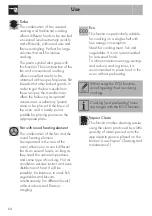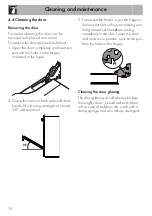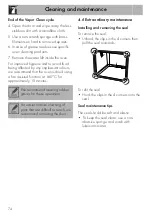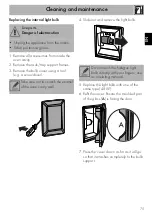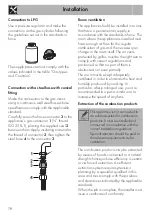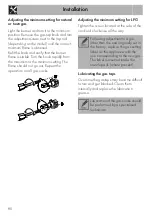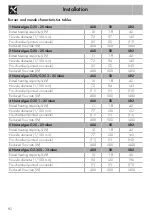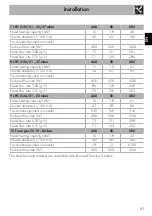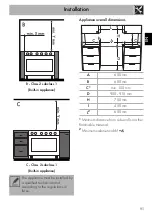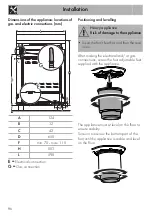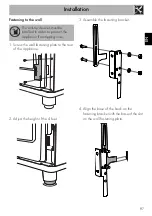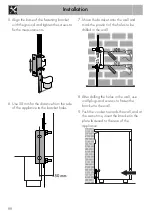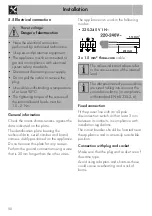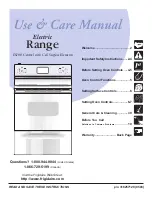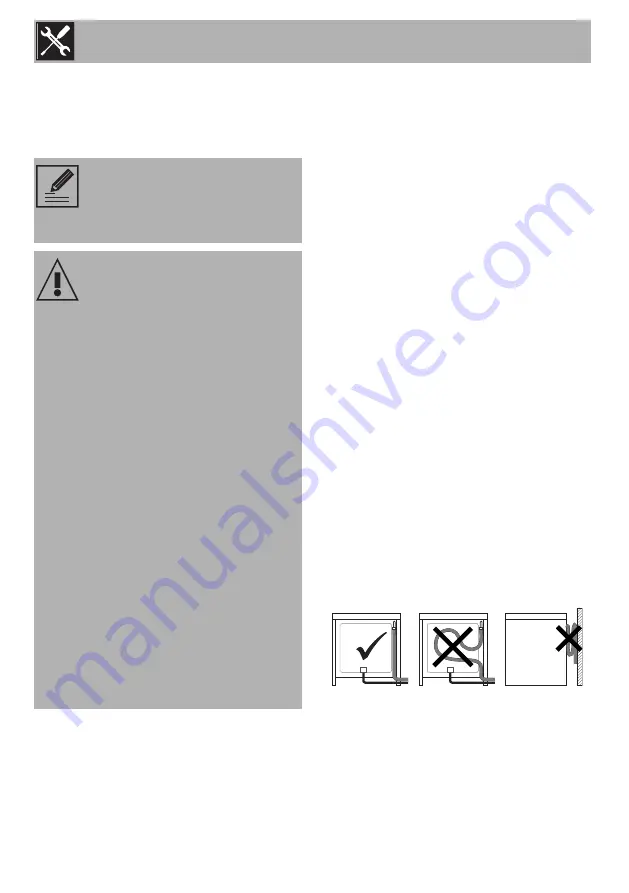
Installation
76
5 Installation
5.1 Gas connection
(not valid for the
UK)
General information
Connection to the gas mains can be made
using a continuous wall steel hose in
compliance with the guidelines established
by the standards in force. The appliance is
preset for natural gas G20 (2H) at a
pressure of 20 mbar. For supplying it with
other types of gas, see chapter “5.2
Adaptation to different types of gas”.
The gas inlet connection is threaded ½”
external gas (ISO 228-1).
Connection with a rubber hose
Verify that all following conditions are met:
• the hose is attached to the hose
connector with safety clamps;
• no part of the hose is in contact with hot
walls (max. 50 °C);
• the hose is not under traction or tension
and has no kinks or twists;
• the hose is not in contact with sharp
objects or sharp corners;
• if the hose is not perfectly airtight and
leaks gas, do not try to repair it; replace
it with a new hose;
• verify that the hose is not past its expiry
date (serigraphed on the hose itself).
Make the connection to the gas mains
using a rubber hose whose specifications
comply with current standards (verify that
the reference standard is stamped on the
hose).
For installation in the UK, please
refer to the “Local specifications for
UK gas appliances installation”
booklet.
Gas leak
Danger of explosion
• After carrying out any operation, check
that the tightening torque of gas
connections is between 10 Nm and
15 Nm.
• If required, use a pressure regulator that
complies with current regulations.
• At the end of the installation, check for
any leaks with a soapy solution, never
with a flame.
• Installation using a hose must be carried
out so that the length of the hose does
not exceed 2 metres when fully
extended for steel hoses and 1.5 metres
for rubber hoses.
• The hoses should not come into contact
with moving parts and should not be
crushed in any way.
• The adjustment conditions for this
appliance are shown on the gas setting
label.



